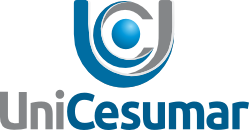Technology Versus Health: The Occurrence of Muscle-Skeleton Lesions in Undergraduates Using Notebooks
Keywords:
Pain, Ergonomy, Lesions.
Abstract
The notebook reached the peak of technological inventions in the early 21st century, featuring compactness and portability. However, excessive use, bad body posture and the ergonomic limitations of the notebook may trigger muscle-skeleton lesions. Current paper investigates, through a descriptive, exploratory, transversal and quantitative study, the occurrence of muscle-skeleton lesions in university students using the notebook. Sample comprised 246 students from a private institution for higher education and the questionnaire comprised 17 questions. Inclusion criteria comprised usage of the notebook for at least 60 min/day and the absence of lesions in the higher members of the body. Further, 43% of the students were 18 - 19 years old; 58.9% did not practice any physical exercises; 65.8% ignored periodic pauses and stretching; 39.6% used the notebook for one or two hours per day; 40.2% used it while sitting, with the notebook on a table, with discomfiture for the lumbar (42.6%) and cervical (36.17%) column. Moreover, 84.4% are right-handed. High occurrence of cervical and lumbar pain may be related to body position (portable computer on the table), which increased cervical flexion. Lumbar pain is affected by long periods in a sitting position, increasing the compression of intervertebral discs. Pain in the right hand may be due to excessive typing on the dominant side.
Published
2015-06-22
Section
Artigos Originas - Promoção da Saúde
A submissão de originais para a revista Saúde e Pesquisa implica na transferência da Carta Concessão de Direitos Autorais, pelos autores, dos direitos de publicação digital para a revista após serem informados do aceite de publicação.
A Secretaria Editorial irá fornecer da um modelo de Carta de Concessão de Direitos Autorais, indicando o cumprimento integral de princípios éticos e legislação específica. Os direitos autorais dos artigos publicados nesta revista são de direito do autor, com direitos da revista sobre a primeira publicação. Os autores somente poderão utilizar os mesmos resultados em outras publicações, indicando claramente a revista Saúde e Pesquisa como o meio da publicação original. Em virtude de tratar-se de um periódico de acesso aberto, é permitido o uso gratuito dos artigos, principalmente em aplicações educacionais e científicas, desde que citada a fonte. A Saúde e Pesquisa adota a licença Creative Commons Attribution 4.0 International.
A revista se reserva o direito de efetuar, nos originais, alterações de ordem normativa, ortográfica e gramatical, com vistas a manter o padrão culto da língua e a credibilidade do veículo. Respeitará, no entanto, o estilo de escrever dos autores. Alterações, correções ou sugestões de ordem conceitual serão encaminhadas aos autores, quando necessário. Nesses casos, os artigos, depois de adequados, deverão ser submetidos a nova apreciação. As opiniões emitidas pelos autores dos artigos são de sua exclusiva responsabilidade.
A Secretaria Editorial irá fornecer da um modelo de Carta de Concessão de Direitos Autorais, indicando o cumprimento integral de princípios éticos e legislação específica. Os direitos autorais dos artigos publicados nesta revista são de direito do autor, com direitos da revista sobre a primeira publicação. Os autores somente poderão utilizar os mesmos resultados em outras publicações, indicando claramente a revista Saúde e Pesquisa como o meio da publicação original. Em virtude de tratar-se de um periódico de acesso aberto, é permitido o uso gratuito dos artigos, principalmente em aplicações educacionais e científicas, desde que citada a fonte. A Saúde e Pesquisa adota a licença Creative Commons Attribution 4.0 International.
A revista se reserva o direito de efetuar, nos originais, alterações de ordem normativa, ortográfica e gramatical, com vistas a manter o padrão culto da língua e a credibilidade do veículo. Respeitará, no entanto, o estilo de escrever dos autores. Alterações, correções ou sugestões de ordem conceitual serão encaminhadas aos autores, quando necessário. Nesses casos, os artigos, depois de adequados, deverão ser submetidos a nova apreciação. As opiniões emitidas pelos autores dos artigos são de sua exclusiva responsabilidade.



